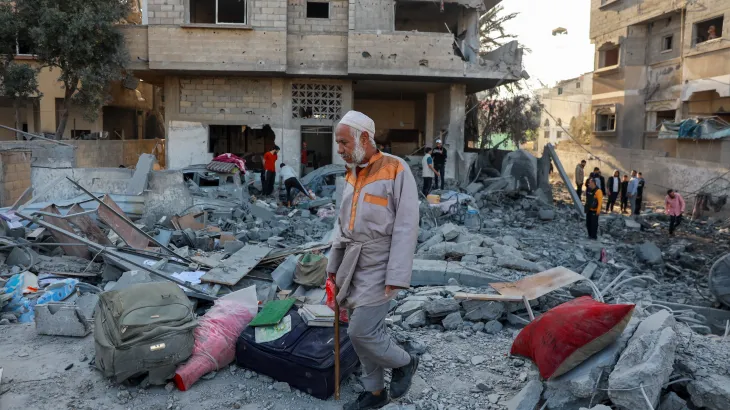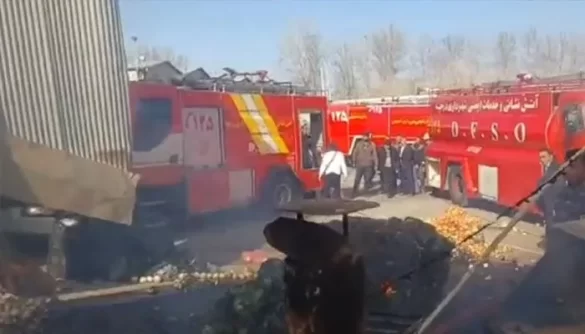Rising Death Toll in Gaza
Israeli air, ground, and naval operations in Gaza continued on Wednesday, resulting in fresh casualties among Palestinians.
According to local health officials, at least eight people were killed since early morning, while more than 50 others lost their lives during the past 24 hours.
In addition, famine and severe food shortages claimed another ten lives, underscoring the worsening humanitarian emergency. Gaza’s health ministry has repeatedly warned that deaths from hunger and lack of medical care are steadily increasing, particularly among children and the elderly.
Multiple Strikes Across the Strip
Foreign media reported that Israeli naval forces carried out heavy shelling in Rafah, a southern Gaza city near the Egyptian border. Similar military actions have also been reported beyond Gaza, including in Yemen where Israeli strikes left dozens dead and caused widespread destruction. At the same time, artillery targeted the Nuseirat refugee camp in central Gaza.
In another incident, an Israeli drone struck a shelter in Al-Shati camp, which was housing displaced families. Witnesses said women and children were among the casualties. The camp, located in Gaza City, has become one of the few remaining sites for families forced from their homes during months of fighting.
UN Declares Gaza a Famine Zone
The United Nations has officially classified Gaza as “famine-stricken,” warning that the humanitarian crisis has reached unprecedented levels. Aid agencies say food, clean water, and medicines are almost impossible to deliver due to ongoing bombardments and restrictions on humanitarian convoys.
At a recent session of the UN Security Council, all member states except the United States described Israel’s campaign as a “man-made catastrophe.” Several diplomats argued that the crisis is no longer the result of war alone but of deliberate policies obstructing aid.
Calls for Immediate Ceasefire
Security Council members urged Israel to agree to an immediate ceasefire and allow unrestricted access for humanitarian assistance.
UN officials stressed that without urgent intervention, thousands more civilians could die from starvation and preventable diseases in the coming weeks.
Human rights organizations, including Amnesty International and Human Rights Watch, have echoed these calls. They warned that the situation may amount to violations of international law if aid continues to be blocked.
Shifting US Public Opinion
Meanwhile, a new survey conducted by a US university has revealed a significant shift in American public opinion on the war. The poll, which included 1,220 registered voters, found that 60 percent oppose sending additional military aid to Israel.
Strikingly, six in ten respondents described Israel’s actions in Gaza as “genocide,” reflecting growing concern over civilian deaths and destruction. Analysts say this represents a marked departure from earlier polls, where US support for Israel had been much stronger.
Broader Context
Since the conflict escalated in October 2023, more than 30,000 Palestinians have been killed, according to Gaza’s health ministry. The majority of the dead are women and children. Israeli authorities argue their operations are aimed at dismantling Hamas’s military infrastructure, but critics say the civilian toll is disproportionately high.
The war has also displaced more than 1.7 million people—over three-quarters of Gaza’s population—according to the UN Relief and Works Agency (UNRWA). Most are now living in overcrowded shelters with limited access to food, water, or sanitation.
Outlook
Despite mounting international pressure, there are few signs of a breakthrough. The United States continues to back Israel diplomatically while facing growing domestic criticism. Regional powers, including Egypt and Qatar, have been pushing for negotiations, but ceasefire talks remain stalled.
For Palestinians inside Gaza, the immediate reality is one of relentless bombardment, food scarcity, and a health system on the brink of collapse. With the UN now warning of imminent famine, the question remains whether global diplomatic efforts can prevent further tragedy.















